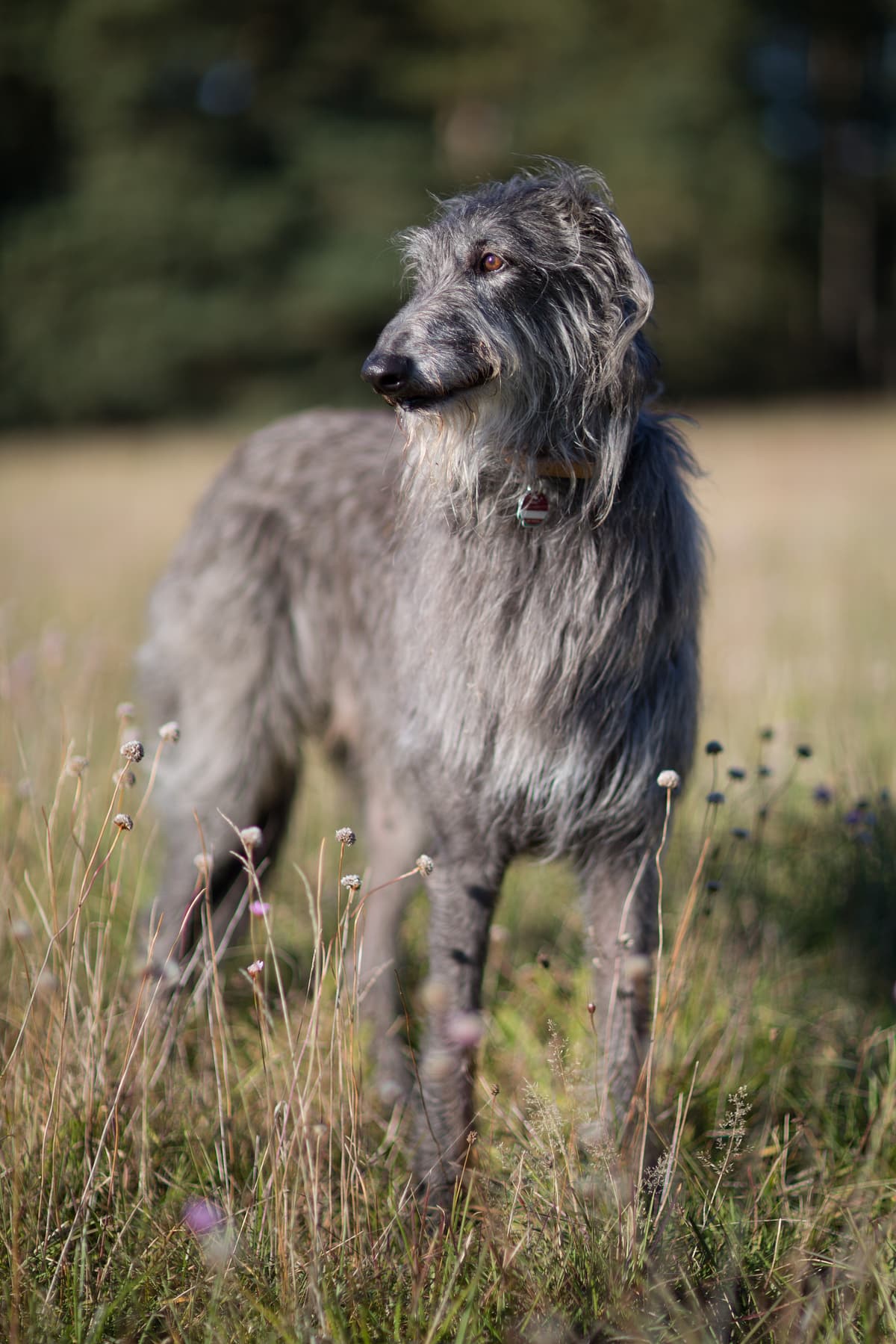Scottish Deerhound vs French Bulldog
Discover the differences between Scottish Deerhound and French Bulldog to make the best choice for your situation.
Try different breeds

Scottish Deerhound
Elegant and gentle, this breed combines quiet dignity with a loving, loyal nature. Known for their athletic build and calm temperament, they thrive as affectionate companions.

French Bulldog
Compact, playful, and affectionate, this breed charms with its expressive face and easygoing personality. Ideal for city living, French Bulldogs make steadfast companions and loving family pets.
Quick comparison
Large
39–50 kg
Harsh, wiry
8–11 years
34–43 kg
Moderately active
Small
9–13 kg
Short, smooth
10–12 years
8–12 kg
Low activity needs
Personality & behavior
Compare the personality traits and behavioral characteristics of both breeds.
Scottish Deerhound
Gentle and friendly with family and strangers
Quick learner, responds well to training
Moderate exercise needs, enjoys daily walks
Occasionally playful, but not overly exuberant
Adjusts to calm homes, dislikes city bustle
French Bulldog
Affectionate with people and enjoys companionship
Learns routines quickly but can be stubborn
Prefers short play sessions and moderate walks
Enjoys interactive games and gentle roughhousing
Comfortable in apartments and various environments
Care needs
Exercise, grooming, and daily care requirements
Scottish Deerhound
Cardiomyopathy, osteosarcoma
French Bulldog
Brachycephalic syndrome, skin allergies
Suitability
How well each breed fits different living situations and families
Scottish Deerhound
Challenging for novices
Their size and needs require experience and commitment from owners
Not apartment friendly
They need space and may struggle in small living quarters
Highly suitable
Their athleticism matches well with active lifestyles and regular exercise
Generally gentle
Usually patient but can be knocked over due to their large size
Usually compatible
Often sociable with other dogs, but prey drive may affect small pets
Prone to loneliness
They dislike being left alone for extended periods
French Bulldog
Great choice
Easygoing temperament and manageable size suit first-time owners well
Perfect fit
Quiet and compact, they adapt well to small apartments
Not ideal
They tire quickly and don’t match very active lifestyles
Highly suitable
Gentle and playful, they are patient with young children
Very friendly
Generally sociable and get along with other pets if introduced properly
Prone to anxiety
They dislike being left alone for long periods and may develop separation issues
Breed strengths
What each breed excels at and their best qualities
Scottish Deerhound
- Gentle and calm with family members
- Excellent with children and other dogs
- Quiet and rarely barks unnecessarily
- Low aggression toward people and animals
- Adaptable to relaxed indoor environments
French Bulldog
- Affectionate with families and children
- Adaptable to apartment living
- Minimal grooming requirements
- Generally quiet and not prone to barking
- Strong loyalty to owners
Challenges & considerations
Potential challenges and considerations for each breed
Scottish Deerhound
- Needs large, secure space for exercise
- Prone to heart and bone health issues
- Sensitive to anesthesia and some medications
- Can be stubborn with obedience training
- High prey drive toward small animals
French Bulldog
- Prone to breathing difficulties due to flat face
- Sensitive to extreme heat and cold
- May develop separation anxiety
- Stubborn during training sessions
- High risk of obesity without portion control
Ready to choose your perfect breed?
Learn more about each breed or compare other breeds to find the perfect match for your lifestyle.
Discover more helpful tools
Make use of our other free tools to get the most out of your pet experience
